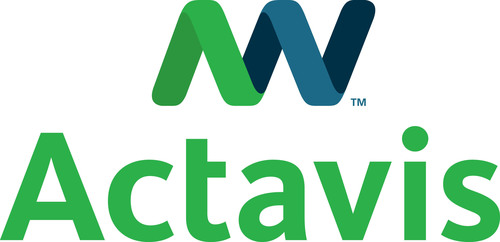
The ultimate launch of Actavis’ product is, however, contingent upon Actavis receiving final approval from the U.S. Food and Drug Administration on its Abbreviated New Drug Application (ANDA) for generic Daytrana®.
This patent dispute in fact arose out of the filing of the ANDA by Actavis. An ANDA applicant must make one of four certifications regarding each patent that applies to the drug for which approval is being sought: (I) no such patent information has been submitted to the FDA; (II) the patent has expired; (III) the patent is set to expire on a certain date; or (IV) the patent is invalid or will not be infringed by the drug covered in the ANDA.
 It is the paragraph IV certifications that are the most interesting from a patent perspective because although a paragraph IV certification is not an active act of infringement, when a paragraph IV certification has been made, the patent owner of the drug covered by the NDA (New Drug Application) may immediately institute infringement proceedings.
It is the paragraph IV certifications that are the most interesting from a patent perspective because although a paragraph IV certification is not an active act of infringement, when a paragraph IV certification has been made, the patent owner of the drug covered by the NDA (New Drug Application) may immediately institute infringement proceedings.
Not only may an infringement action be instituted by the patent owner of the drug covered by the NDA, but there are significant advantages for doing so. If a lawsuit is filed, an 18-month automatic stay goes into effect, during which time the FDA cannot legally approve an ANDA. As a result, many patent owners institute lawsuits to take advantage of the 18-month automatic stay, and have even sought consecutive 18-month stays.
Under the terms of the agreement, Noven will grant Actavis a non-exclusive, royalty-bearing license to market its generic Daytrana® beginning on Sept. 1, 2015, or earlier under certain circumstances. Other details of the settlement were not disclosed.
Based on available information, Actavis says that it believes it is the “first applicant” to file an ANDA for the generic version of Daytrana®. As a result, if its ANDA is approved and if they were in fact the first applicant, they will be entitled to 180 days of generic market exclusivity.
If Actavis turns out to be the first ANDA filer, they receive the 180-day market exclusivity because of a wrinkle in the Hatch-Waxman legislation that encourages the filing of ANDAs and the entry into the market of generic drugs. The first ANDA applicant to file a paragraph IV certification is statutorily granted a 180-day period of generic marketing exclusivity, during which the FDA may not approve a subsequent generic applicant’s ANDA for the same drug product. The motivation for such a provision is to provide an economic incentive for generic manufacturers to challenge the validity of pharmaceutical patents and/or to encourage generic manufacturers to design around such patents. The thought process leading to this policy is that, through a paragraph IV certification, the public benefits by obtaining drugs that are the bioequivalent of patented drugs, but without the patented price.
Tags: Abbreviated New Drug Application, Actavis, ANDA, Daytrana, drugs, Noven Pharmaceuticals, patent, patents




You share in the PLI Practice Center community, so we just ask that you keep things civil. Leave out the personal attacks. Do not use profanity, ethnic or racial slurs, or take shots at anyone's sexual orientation or religion. If you can't be nice, we reserve the right to remove your material and ban users who violate our Terms of Service.